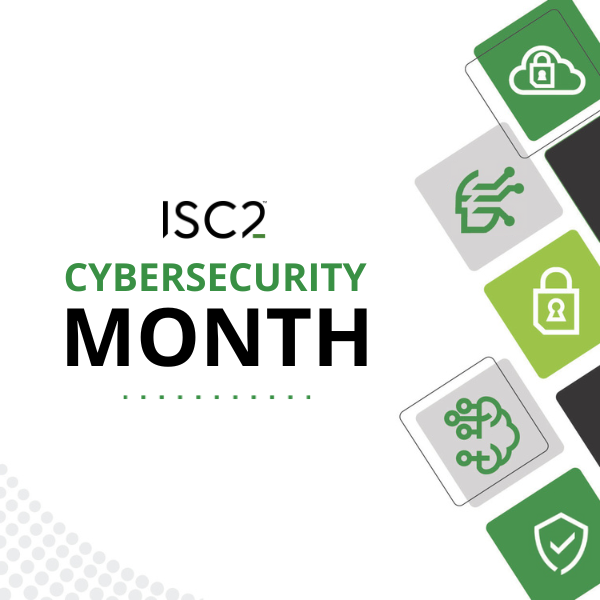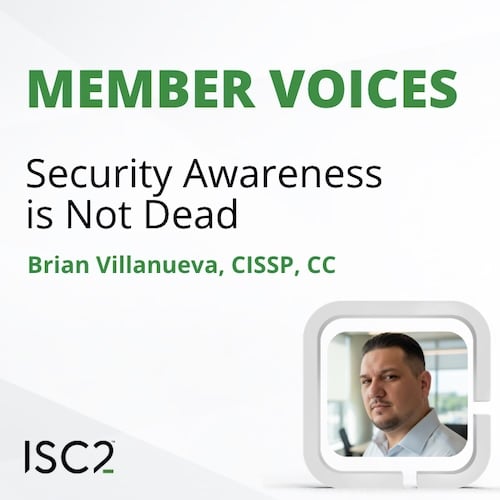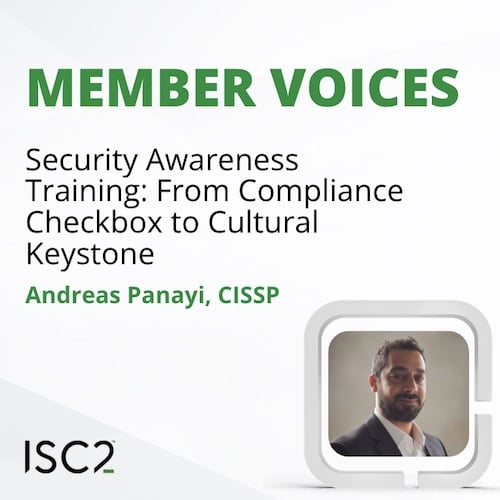The cybersecurity profession continues to face a significant skills shortage. Renata Vincoletto, CISSP explains how the ISC2 East of England Chapter and Anglia Ruskin University have responded, building a cybersecurity community-centered partnership that connects academics, students and industry professionals.
Disclaimer: The views and opinions expressed in this article belong solely to the author and do not necessarily reflect those of ISC2.
Addressing shortages requires more than technology alone. It calls for organizations to “put people before technology”, investment in training, and the adoption of meaningful inclusion practices.
The shared mission of the ISC2 East of England Chapter and Anglia Ruskin University (ARU) is to prepare a new generation of cybersecurity practitioners through practical education, mentorship, and inclusive engagement.
A Hands-One Approach to Cybersecurity Education
The approach of ARU towards cybersecurity education is firmly rooted in applied learning – a belief that the best way to prepare students for a career in cybersecurity is through hands-on experience. Most teaching modules include practical components, allowing students to apply their knowledge to realistic case studies.
Some of these modules feature “live briefs”, developed jointly by industry professionals and ARU academics. Replicating real-world scenarios, these briefs challenge students to design practical solutions, allowing them to showcase both their technical and problem-solving skills.
Beyond the classroom, students benefit from a steady program of guest speakers, specialist events such as Capture the Flag competitions and industry-aligned coursework.
One of the ways in which ARU ensures that learning is relevant to current threats, trends and professional practices is through its partnership with ISC2’s East of England Chapter. The university’s MSc program covers all eight domains of the CISSP Common Body of Knowledge, providing a pathway for students to prepare for and even sit for the globally recognized CISSP certification.
The collaboration also serves purposes beyond this: it embeds employability into the curriculum, increases industry interaction, and advances diversity in STEM. Members of my Chapter support careers fairs, participate in advisory boards, and help ensure the university’s programs remain aligned with the evolving needs of the profession. Here are some of the specific initiatives in which we at the Chapter are involved.
- Chapter Meetings Hosted at ARU – Students and researchers attend ISC2 East of England Chapter meetings on campus, present their work and network directly with practicing professionals.
- Guest Lectures and Panels – Industry speakers share insights on ISC2 certifications, career journeys and sector trends, helping demystify the profession and guide career planning.
- Women in STEM and Inclusion Events – Joint events highlight role models and pathways for women in technology; the partnership was showcased at the ISC2 Global Chapter Leaders Summit 2025 as a model for inclusive community building.
- Careers Fairs and Mentoring – Chapter members advise students at ARU’s computing careers fairs; the Chapter President sits on ARU’s Computing Employability Advisory Group. LinkedIn and WhatsApp groups keep mentoring active year-round.
- Research Collaboration – Joint projects, such as an Innovate UK-funded initiative to help SMEs adopt AI and cybersecurity solutions, with the Chapter linking researchers to SMEs and providing practical input.
It’s important to note that these activities are not one-off events. The Chapter’s involvement is a consistent and evolving program, offering perspectives that academics alone cannot provide and helping to keep students engaged and industry-ready.
Engagement and Impact
Let’s talk about that engagement, and the impact of that engagement:
- There has been a visible impact on student confidence and professional ambition: first-year undergraduates have become more at ease interacting with industry professionals, while master’s students increasingly see professional certifications as attainable goals.
- Some events have had an immediate effect: following certain guest lectures, students have contacted speakers for advice, joined the Chapter’s networking groups, or sought guidance on job applications and interview preparation.
- ARU faculty members have also been inspired. Several teaching staff are now pursuing CISSP certification, with plans to embed its content more deeply into the master’s curriculum.
Both ARU and the Chapter recognize that sustained engagement is vital. While the feedback from students has been overwhelmingly positive, we know there’s more to do to reach the full potential of these initiatives. Ideally, we will encourage secure behavior across the whole student body, not just those already interested in cybersecurity. Both ARU and the Chapter aim to consolidate and strengthen the programs already in place. Priorities include establishing a consistent calendar of guest lectures, building on the momentum of Women in STEM activities, and securing greater industry involvement in the annual careers fair.
Championing Representation
The partnership with the ISC2 East of England Chapter plays an important role in supporting students from ethnic minorities, people with disabilities and neurodiverse communities, creating safe spaces for members of these groups to interact with industry professionals and build confidence in their career prospects. In cybersecurity, this assumes additional importance: diverse perspectives drive better, more innovative solutions. As technologies like AI evolve, solutions must reflect a wide range of cultural and social contexts to be effective and inclusive.
Some Women in STEM events are co-organized with the Chapter, showcasing female leaders in technology and encouraging more women to study computing. Highlighting this work at the ISC2 Chapter Leaders’ Summit underscored the global relevance of ARU’s approach.
Looking Ahead
Dr Erika Sanchez-Velazquez, Senior Lecturer at ARU, tells it how it is: “A strong partnership between academia and industry is crucial for identifying the skills demanded by the cybersecurity sector. This collaboration enables universities to better prepare students for the job market and helps close the skills gap.” By blending practical education, inclusive engagement, and real-world industry connections, the partnership between ARU and the ISC2 East of England Chapter is already creating a pipeline of confident, capable cybersecurity professionals.
ARU’s vision for the long term is to establish it as a leader in cybersecurity education and research, with a track record of producing graduates who are not only technically capable but also industry-savvy and inclusively minded. At the same time, it aims to foster research partnerships that support our academic staff and strengthen the connection between ARU and the cybersecurity community.
For universities or similar organizations considering a similar partnership, my advice is to take the initiative and reach out. Your local ISC2 Chapter will welcome your ideas and are ready to collaborate on turning them into reality. The only investment required is your time – and the rewards for students, staff, and the wider community – can be immense.
In a sector where the skills gap remains a pressing challenge, such community-driven initiatives provide a blueprint for meaningful, sustainable change.
Renata Vincoletto, CISSP, has over 25 years of experience in SMBs, multinationals, GovTech, healthcare, education and non-profit organizations. She has held business, management and technical roles, with responsibility for information security, risk management, compliance, incident response and cyber strategy.



